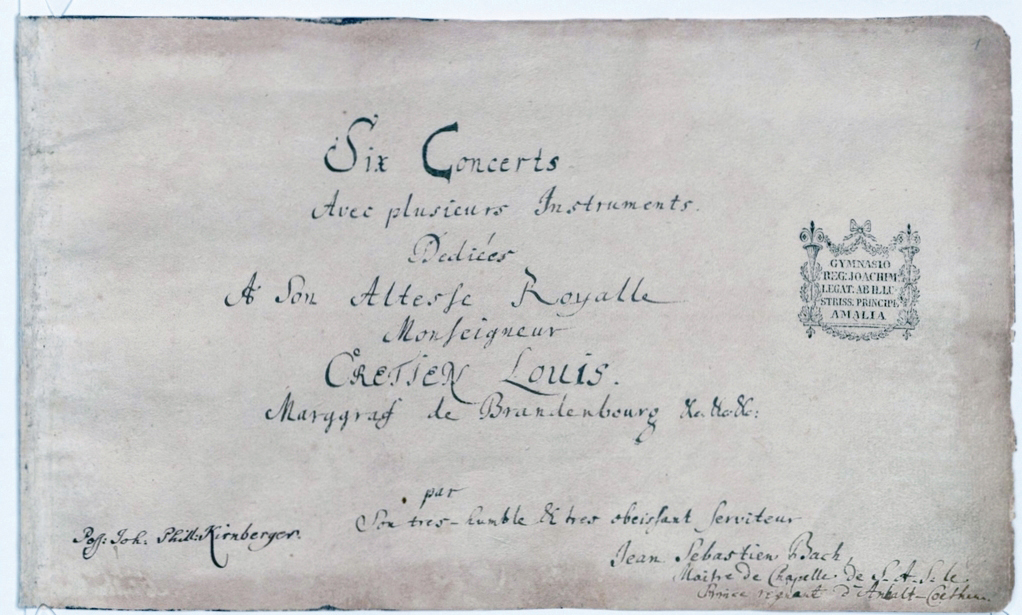Composed c.1720; 20 minutes
As we saw in the Festival’s June 15 concert, Bach’s “Six Concertos for Several Instruments” were not new compositions when Bach presented his handsomely calligraphed copy to Margrave Christian Ludwig of Brandenburg in 1721. Two alternative versions of the Fifth Brandenburg Concerto have survived, one similar to the Margrave’s concerto, the other, lesser known, with substantial differences. The collection demonstrates Bach’s ability to write in both the latest Italian style, and to master all the varied traditions of the Italian and German concerto form. Each concerto has its own distinctive instrumental grouping and sound world. The unity of the six concertos comes about through their diversity.
The Fifth Concerto is scored for a solo group (known as the concertino) made up of harpsichord, flute and violin, plus strings, (the ripieno, here with just one violin line). Having the harpsichord a clear first amongst equals, may have come about because when Bach first met and performed for the Margrave he did so as one of the leading keyboard virtuosos of the age. Additionally, the main purpose of his 1719 visit to Berlin from rural Cöthen had been to inspect a new high-end harpsichord for the Cöthen court. The flamboyant cadenza-like episode for harpsichord towards the end of the first movement may well have been designed to show off the potential of the new custom-built instrument, since in the alternative version of Brandenburg 5, this episode is shorter. Here, it goes well beyond the traditional rhythmic and harmonic practices of the day. The slow movement is a tender air for the three solo instruments, still cunningly replicating the contrasts and episodes of the full concerto ensemble. After this intimate chamber music, the final movement is a dance-like fugal gigue.

1721 title page of Bach’s Brandenburg_Concertos, in French, with Bach’s dedication to the Margrave of Brandenburg. (Deutsche Staatsbibliothek, Berlin)
— All Bach (father and son) and godfather (Telemann) program notes copyright © 2024 Keith Horner. Comments welcomed: khnotes@sympatico.ca